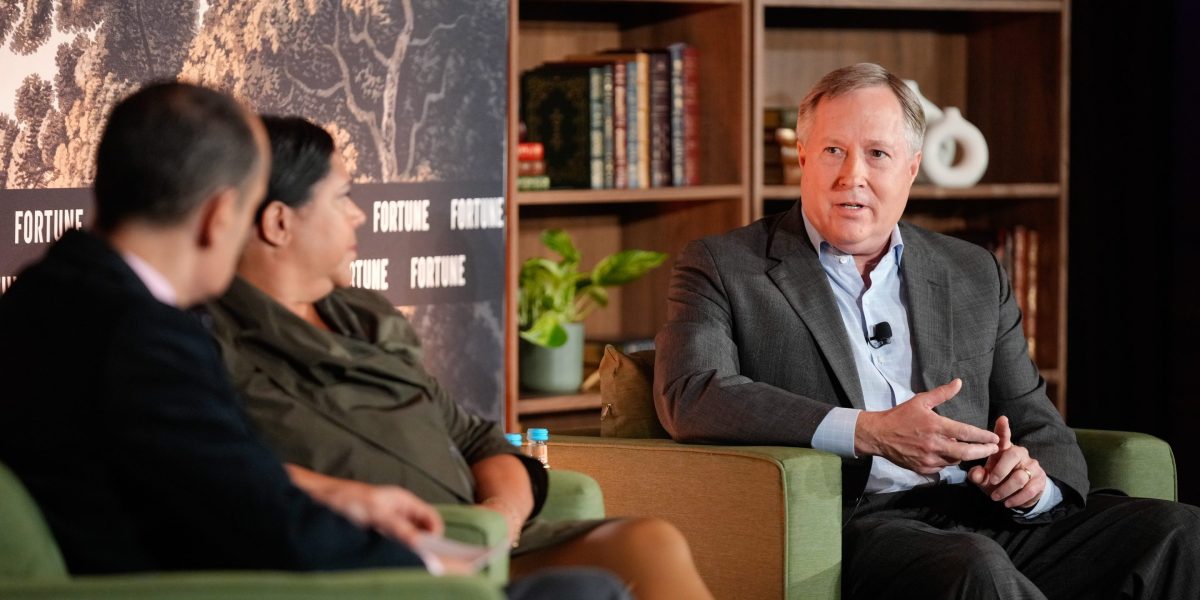
Chief operating officers are faced with two main sets of priorities: keeping the business humming and preparing it for the future, according to New Balance chief operating officer Dave Wheeler.
“Run the business; transform the business,” Wheeler said during an on-stage interview at Fortune’s COO Summit conference in Middleburg, Va. on Monday.
Since the pandemic, COOs have had to transform their organizations for a new set of conditions—some might say crises—that virtually no one in the business world had expected. This created unprecedented pressures for COOs. They had to deal with a global pandemic that shuttered offices, ensnarled supply chains, and caused gargantuan problems with no clear timeline for resolution. While all those issues unfolded, COOs still had to keep their businesses humming along.
“During COVID, you had to solve COVID, but you were still operating a business,” COO and private equity firm TPG partner Anilu Vazquez-Ubarri said from the conference’s main-stage event.
Wheeler agreed. “It’s been not only managing through geopolitical issues, but also scaling up at a significant rate and innovating at the same time,” he said.
Proving themselves during these particularly tumultuous times has catapulted some COOs as front-running candidates to step into the top job. In recent years, boards appointed former COOs like Netflix’s Greg Peters and Costco’s Ron Vachris into CEO positions.
While he says he’s happy with his current role, Wheeler told Fortune COOs make for good CEOs, particularly in product-focused companies.
“Just knowing how a product is made and having overall purview of that is something that not all executives have in the various C-suite roles,” he said. ”I just think it takes a certain mindset and a personality to make it successful. And if you’re successful as a COO, you could be a successful CEO.”
Why COOs make good CEOs
One of the reasons COOs make for good CEOs is they’re adept at spotting where the next major pain point might crop up, according to Vazquez-Ubarri.
“Because you’re involved in so much, you can probably see a crisis coming,” she said.
Once that crisis hits, COOs often know who in the company to tap to help solve it, Vazquez-Ubarri added. “You understand who you need to pull in,” she said. “You need to be the connector to make sure everyone that needs to help has their marching orders.”
While COOs are known for their operational chops, both Wheeler and Vazquez-Ubarri sought to dispel the stereotype that COOs aren’t as well-suited to strategy. Not to mention, the pandemic forced them to be closer to their firm’s long-term planning, which changed their roles.
“We’re all closer to where the business strategy is being created and ideated, it just has to actually be able to be executed on,” Vazquez-Ubarri said.
But as the role changes, COOs know they can’t do it alone. Leaders need buy-in from their teams. Vazquez-Ubarri told Fortune she expects her team to come up with solutions to problems that will still work five years down the road, not just at the current moment. COOs also need to set an example for the company, Wheeler added.
“Role-modeling is the most important,” he said. “I make sure that all my direct reports and everybody in the team really reflects that we have integrity, teamwork, and total customer satisfaction. Everybody gets that, and it’s part of the role also to help people in other functions understand the complexity of operations.”
The need for operational rigor doesn’t go away when, and if, a company sees its business boom, as New Balance did after hitting $6.5 billion in revenue in 2023, Wheeler noted.
“Expanding is just as challenging as shrinking,” Wheeler said. “It’s just more fun.”

